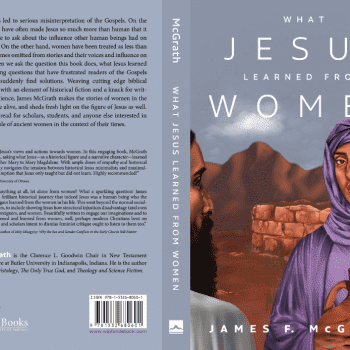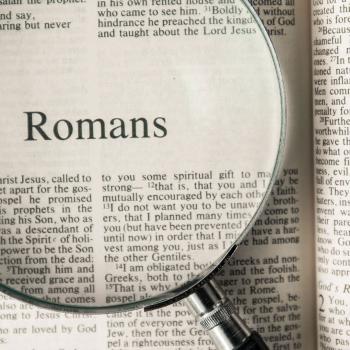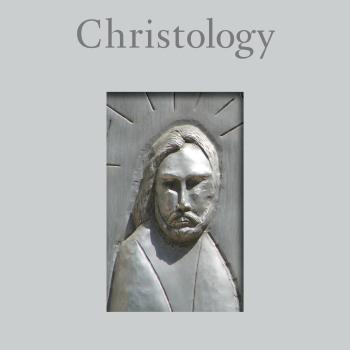In this video, Rob Orlando (maker of the documentary Apostle Paul: A Polite Bribe and author of the book by the same name) suggests that Paul was inclined towards fanaticism – and like many who switch their allegiance from one group to another, even (or perhaps especially) a diametrically opposed one, he remained as fanatical as a Christian as he had been as a non-Christian Pharisee. He was just fanatical about something different.
What do you think? I think this question provides a great opportunity to look at movements for social justice and inclusivity in our time, and the proponents and public voices that represent those stances. Despite the prejudices and stereotypes that many have, those who are extreme nationalists or religious exclusivists most certainly can undergo a change of heart and perspective. But they may end up speaking and acting in ways that exclude those whom they previously represented, excluding those who would still exclude whatever constituency the individual in question is now adamant needs to be included.
Paul’s stance may or may not have been more radical than that of most Christians who welcomed Gentiles. There were certainly different views about the basis on which they were to be accepted and their status once they joined the Way of Jesus.
I think there can at least potentially be a very significant difference between those who think they are switching from bigotry to social justice advocacy and yet are really just being mean-spirited and hateful for a different team, and those who are genuinely concerned for justice and inclusion – so much so that they regretfully have no choice but to oppose and exclude those who are stubbornly opposed to inclusion and justice. The latter stance is not as paradoxical as is sometimes claimed – the analogy I use in the article I wrote with Ankur Gupta is the United Federation of Planets being committed to Infinite Diversity in Infinite Combinations, and yet standing against the Borg. The Borg are uncompromisingly opposed to that diversity, and so there is no way to simply include them in a diverse society without undermining its very ethos and essence in the process.
Richard Beck’s post about our penchant for feeling disgust towards our opponents, and how that can lead us to dehumanize them, is also relevant to this topic.
How do you understand Paul? Is he an extremist? And if so, is he a good kind of extremist or a bad one? Is he a useful figure to look at in discussing subjects like extremism and exclusivism in the present day, as well as in ancient Judaism/early Christianity?
If you missed the previous post in this series, don’t worry, you can find a convenient link to it here. And if you’ve never seen Apostle Paul: A Polite Bribe, you can do so through Vimeo’s on demand service:
Paul is such an important and interesting voice in early Christianity, that he intersects with lots of other topics. It is no wonder that Rob Orlando finds him fascinating, as do so many academics in the field of New Testament and early Christianity!
While this series of APBs on the historical Apostle Paul is running, I will include links to other blog posts and articles that have come to my attention during the week or so prior that in some way relate to him, as well as trying to interact with and provide excerpts from at least some of them. Also, stay tuned for two special giveaways that I’ll have in upcoming posts in this series! Once the series gets properly started, I hope to share something weekly. But having started the series a while back and then put it on hold, it seemed about time for another teaser.
In the meantime, see also the piece about Rob’s most recent film, “The Divine Plan”:
https://catholicexchange.com/the-divine-plan-did-a-holy-alliance-save-the-world
See too Brad East’s review of Paula Fredriksen’s recent books, Paul the Pagans’ Apostle and When Christians Were Jews, as well as this piece about Paul’s fanaticism and the stoning of Steven. The Oxford University Press blog shared a book excerpt about where concerns about slavery and social justice went after Paul. Chaplain Mike is one of many to be engaging with Scot McKnight’s latest book, Reading Romans Backwards. See his ongoing series, and also the following:
http://eerdword.com/2019/08/08/63685/
AJR on Paul and the development of Christian textuality
THE APOSTLE PAUL AND DR. LUKE ON THE ISLAND OF COS: Sin, Sickness, and Death
https://www.episcopalcafe.com/stones-betrayal-and-a-vision/














